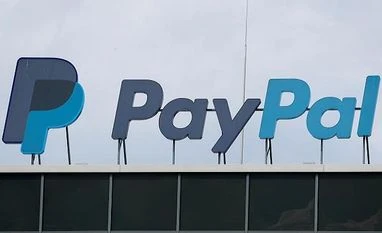Digital payment solutions provider PayPal on Wednesday said India is the "bedrock" of its development capabilities and it continues to hire aggressively in the country to further build and drive the teams.
The US-based company, which had announced its exit from the domestic payment services within India on April 1, said it is focussed on enabling small businesses in the country to leverage digital platforms and expand their cross-border sales.
"We have a significant presence in Chennai and Bengaluru, we have a sales and marketing office within Mumbai and between our payments teams, our merchant teams, a lot of the infrastructure teams are out of India. India is literally the bedrock of our development capabilities that we have," PayPal Senior Vice President (Omni Payments) Jim Magats told reporters in a virtual briefing.
The company has over 5,500 employees across its tech centers in Bengaluru, Chennai, and Hyderabad. Wes Hummel, VP of Site Reliability and Cloud Engineering at PayPal, said the company continues to hire aggressively in India.
"I have my infrastructure team, I have a significant contingent out there...we'll continue to build out there, it's a key part of our go-forward strategy and a key part of our hiring strategy. We found an incredible mix of operations, engineering folks, folks that actually will help us continue to build and drive that engine in PayPal," he added.
In February, the company had stated that it had processed USD 1.4 billion worth of international sales for over 3.6 lakh merchants in India last year.
Asked about PayPal's exit from the domestic payments segment in India, Magats said the company took the decision in order to focus on cross-border payments.
More From This Section
"There are lots of providers that are in the market around digital payments within India for domestic payments, I think there are very few that have the strength and capabilities and can bring cross-border (payments), and we decided to focus our efforts on where we felt we could add the most value," he added.
Magats highlighted that the number of businesses coming online has grown significantly amid the pandemic, and PayPal is looking at evolving to a commerce company.
"We're evolving ourselves to be really a commerce organisation and what that really means for us is enabling tools that help these small businesses in particular, to sell on different channels as well as to be able to get access to their customers, much more easily," he said.
He pointed out that one of the biggest pain points for small businesses is access to customers.
He explained that they are not only competing with large retailers that offer loyalty programmes, they also face challenges around areas like access to logistics.
"And so what we're starting to think about are their ways to match up interests to the curation of inventory that we have more holistically...you've got to help these small businesses compete because the world is becoming asymmetrical, especially with the pandemic, with more big businesses for taking share. We've got to create ways to make it easier for them to compete," he said.
Magats said PayPal is looking at becoming a 'super app' for consumers for financial services, bill payments, and others.
"The idea of building the super app is extremely important for us, it moves us from the consumer side from just a payment relationship to a much more robust financial services and commerce experience. So taken together, we're really excited about what we've been able to do over the course of the last couple of years with the pandemic, but we think our best days are in front of us with all these wonderful new product capabilities," he added.
He emphasised that the company would continue to be open and interoperable, and give choice to consumers.
"We're not here to compete with small businesses, other businesses, we're basically creating connectivity between all the different businesses and consumers and so ultimately, we're about conversion, we are about converting commerce that would be hard to do, and our aspects of being a super app are really about how do we curate experiences together for both merchants and consumers that make it easier for them to interact," he said adding that the company has historically been "extremely additive to the ecosystem".
)